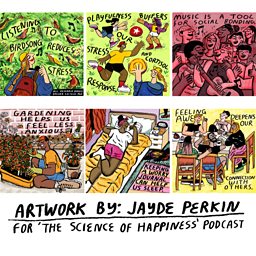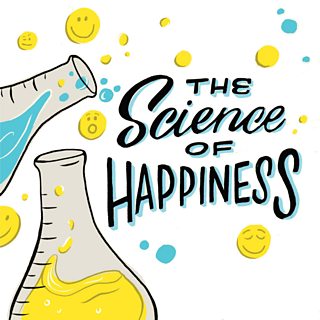The science of singing along
Singing with others is good for you. As studies have shown, it can support your immune system and memory; it can trigger a release of dopamine; and it can help your body to relax.
In the podcast The Science of Happiness, psychologist Arla Good spoke to executive producer Shuka Kalantari about how group singing can act as a tool for social bonding.
For over 10 years, Good has been finding out what happens to our minds and bodies when we sing with others. So, what did she find?
Music is a tool for social bonding.
“When we move together, we feel similar and we bond, and then we become more effective and efficient as a coordinated group,” says Good. This has always been necessary for the human race to survive.

Singing can help reduce stress.
Good co-directs the SingWell project at Toronto Metropolitan University. In one of their experiments, they measured the mood of an informal choir group before and after singing together. They did this by giving the singers questionnaires, and by measuring the oxytocin and cortisol levels in their saliva. She also measured their pain thresholds by applying pressure to their fingers.
She then repeated the experiment, except this time she brought each singer into her lab and had them sing by themselves.
In both sessions, they saw decreases in cortisol levels – which suggests that singing helps to regulate stress.
“So there's something to singing,” she says. “It's the deep breathing. There's a cardiovascular engagement.”
Singing with others can boost your mood.
Their data showed that group singing also improved the release of oxytocin, but individual singing did not. Good found the difference “really exciting”.
But firstly, what is oxytocin?
“Our understanding of oxytocin and how we're measuring it through saliva is really in its infancy. We know it's a peptide produced in the hypothalamus, deep in our brains, and when released it tends to make us bond more easily with others. We know it's released during sex, during mother infant bonding, and through listening to music and exercise.
“We didn't see any change in oxytocin following individual singing. People also reported they weren't in a much better mood after singing alone in the lab. But they were happier when they sang together.”
Most of us can sing, so why not try it?
Good urges everybody to sing, even if you don’t think you’re particularly tuneful. She believes it can bring real health benefits.
“We are just holding ourselves to the standard of the Celine Dions of the world – but we all have this voicebox that we can use to sing.”

-
![]()
Honest personal stories on what it’s like growing up in in the UK today, as told by Βι¶ΉΤΌΕΔ Young Reporters.
-
![]()
How Do You Cope?
Elis James and John Robins talk to a range of guests about the challenges and hurdles they've faced in their own lives.
-
![]()
The inside story of one of the world’s most bizarre and ballsy reality dating shows.
-
![]()
Ear Hustle
A raw, often funny, and always surprising peek into the reality of life inside prison.





